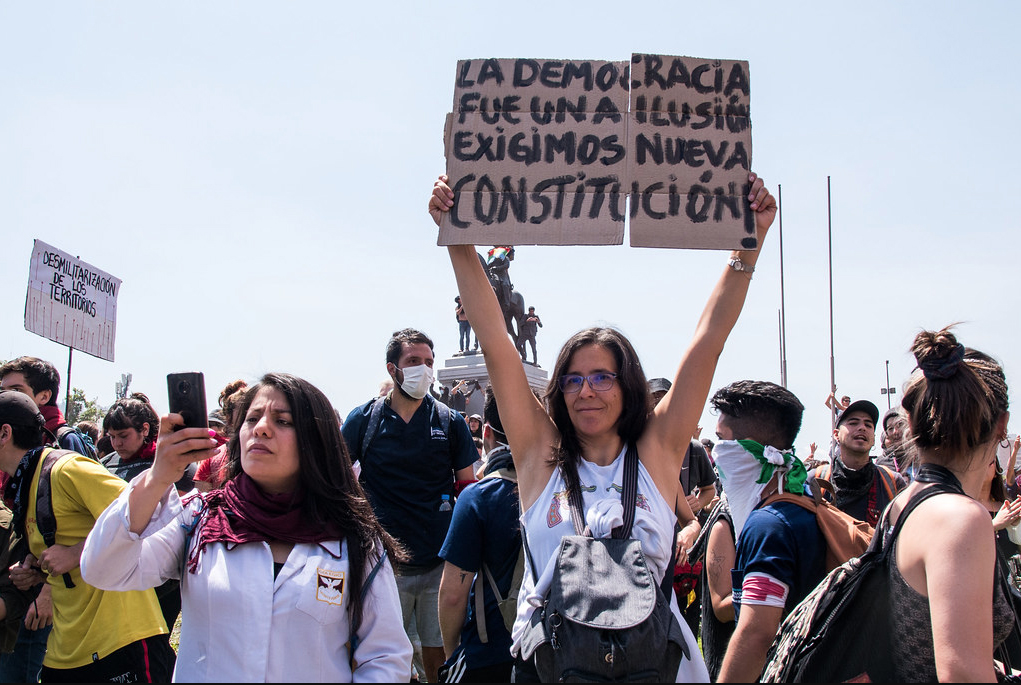A truly historic election was held this Sunday. Chileans decided, in a convincing way, through a plebiscite, that the country will have a new Constitution. The new adjective should not be taken lightly. We are not facing a constitutional reform, but the possibility of writing a text from scratch, from a blank page. The election also had the purpose of defining the mechanism in charge of drafting the new Constitution, that is, through a constitutional convention made up of 155 members who will be elected by direct vote on 11 April 2021.
The constitutional convention have equal gender membership and will contemplate special quotas for members of indigenous communities. This deliberative body will draft the new Constitution within a period of 9 months, which may be extended for up to 3 more months. The text must be approved by at least 2/3 of its members and subsequently ratified by an exit plebiscite. If within the established period of time there’s no agreement, the current Constitution approved in 1980 will remain in force.
the country’s main political forces agreed to an “Agreement for Social Peace” whose central axis contemplated a constitutional plebiscite.
This plebiscite is extraordinary because of the context in which it originated. In October 2019, Chile experienced a wave of mass protests, mostly peaceful but occasionally violent, that lasted for more than two months. In the midst of a social outburst of biblical proportions, which according to President Sebastián Piñera, the government did not see coming, and clearly did not know how to deactivate, the country’s main political forces agreed to an “Agreement for Social Peace” whose central axis contemplated a constitutional plebiscite. Thus, the new Constitution became a political strategy to dismantle a social conflict that otherwise did not foresee an auspicious outcome.
But was the demand for a new Constitution the main demand of the mobilized citizenry? Certainly not. The mobilized citizens did not articulate themselves around a leader, group or movement, nor did they clamor for a concrete reform. On the contrary, during the social explosion the public space was flooded with multiple demands and heterogeneous claims such as improved access to health, decent wages, quality education, the end of pension insurance companies and the reduction of inequalities around socio-structural categories such as class, gender and ethnicity, among others.
However, for a large part of the citizenry and the political elites, the 1980 Constitution had become a real thorn in the side of both the symbolic and the instrumental. Symbolically, the current Constitution was written in the midst of the dictatorship and without citizen participation, something that has led many to consider it a text with an original sin. Given that the country faces a profound crisis of legitimacy, expressed in low levels of party identification, confidence in the institutions and political participation, having a democratic Constitution, the product of deliberation, seems both timely and necessary. Instrumentally, the Constitution was designed to maintain the status quo, through various rules that hinder change, and not to institutionally process accumulated demands and discontent. For this reason, some consider that in order to emerge from the crisis it is essential to have a new Constitution that does not operate as a brake on change.
What remains to be seen is whether a new constitution will resolve the deep crisis of legitimacy in which Chile finds itself.
What remains to be seen is whether a new constitution will resolve the deep crisis of legitimacy in which Chile finds itself. There is no doubt that political crises often offer opportunities to reflect on what kind of country citizens want to build and to adopt necessary transformations that would otherwise be difficult to achieve. We also know that when people perceive decision-making processes as legitimate, they are more likely to accept their results, even when they are adverse. These, in and of themselves, are powerful reasons to hope for a new Constitution.
However, this process presents enormous challenges in managing rising expectations. A good part of the citizenry could be waiting for a new constitution to bring a solution to many of the problems and demands that were manifested after the social explosion. The availability of medicines, socioeconomic inequality, gender discrimination, abuses by private companies and employment levels will not be resolved immediately or expeditiously if a new constitutional text is approved.
The context does not help either. COVID-19 hit Chile hard, with over 500,000 cases already accumulated. The economy has also suffered the effects of the pandemic, with unemployment levels around 13% and a projection of -6.3% for this year, according to the World Bank. Opinion polls show that widespread discontent still prevails.
It is undeniable that having a new Constitution is a necessary step to solve the crisis of legitimacy in which the country is immersed. However, this will not be enough. If the political class does not rise to the occasion, if the management of citizen expectations is deficient and if broad transversal socio-political agreements are not built around a common project, it will be difficult to look to the future with optimism.
*Translation from Spanish by Emmanuel Guerisoli











